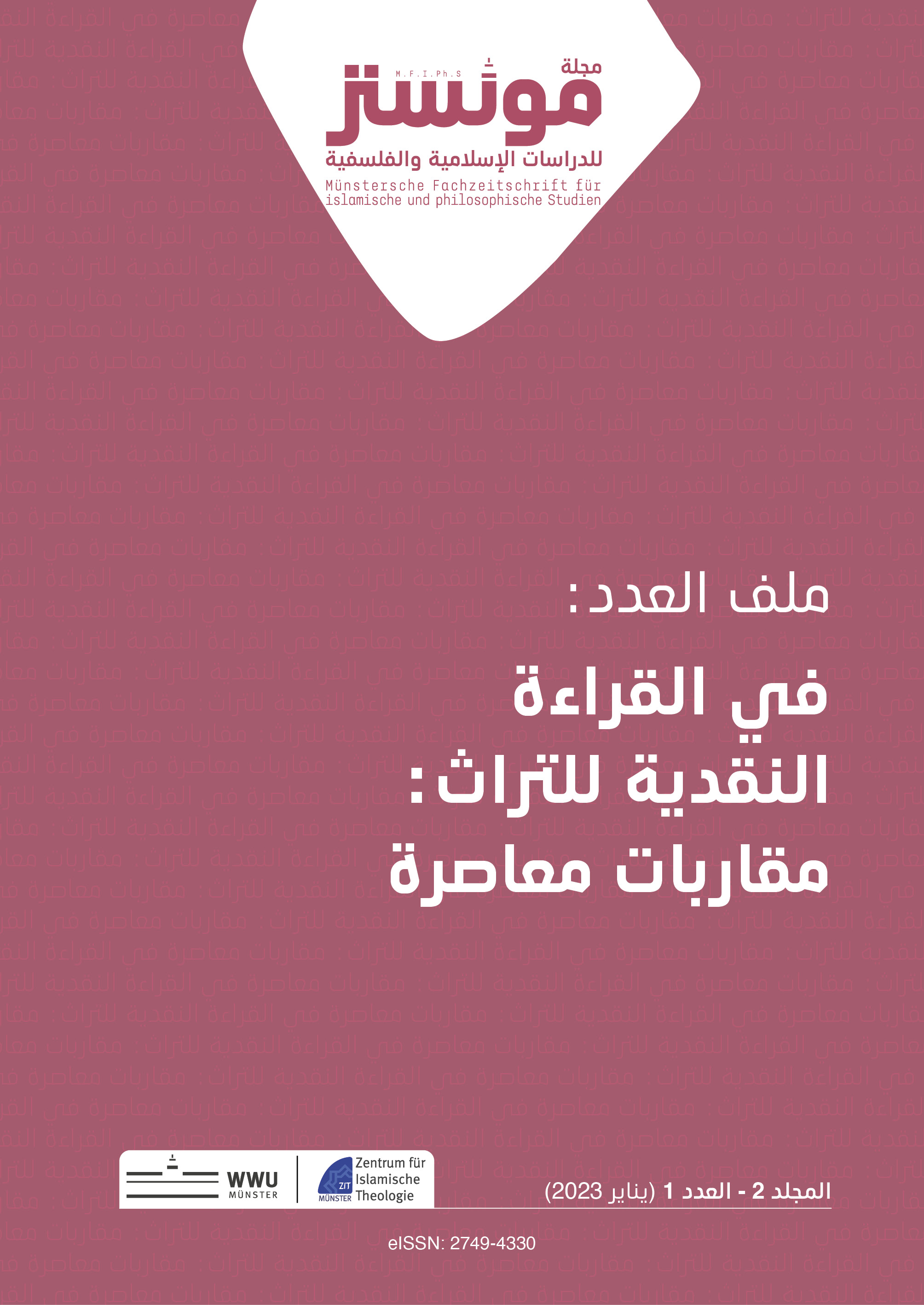Vol. 2 No. 1 (2023): On the critical reading of tradition: Contemporary approaches

Successive political events in the MENA region have negatively affected Muslim communities and the image of Islam in the world. Such questions as: Is there Enlightenment in Islam? and can Islam be reformed? have become common questions in both the public and academic domain.
The answers varied and multiplied, but they often take two main directions: The first proves the originality of enlightenment in Islam, and that it is an intrinsic characteristic of it, then they separate in defining the field of enlightenment thought in Islamic civilization; The second approach denies the relationship of Islam to enlightenment on the grounds that enlightenment is linked to a historical context and particular conditions, which have not been realised in the Islamic world.
According to the second view, could the Islamic tradition -especially the jurisprudential one associated with authority and the theological one limiting human condition, the reason for the postponement of the Enlightenment question, hence the failure of Islam to assimilate the idea of renewal and reform?
What comes to mind at first glance is the connection of the concept of enlightenment with the concepts of reform and renewal, and then the connection of all these concepts with reason, or to be more precise, with a critical reading of tradition.
From this perspective, we have decided to take up the question we presented in the special issue of the first volume (2022), so that the topic of this issue is: "On the critical reading of tradition: contemporary approaches", which will deal with a number of contemporary debates that have formed, and still form, the basis on which discussions of Islam's relationship to enlightenment, reform and renewal arise.
The presentation of these debates is an opportunity to open a scientific and academic debate on them and the issues they raise, to consider their limits and their potential.



